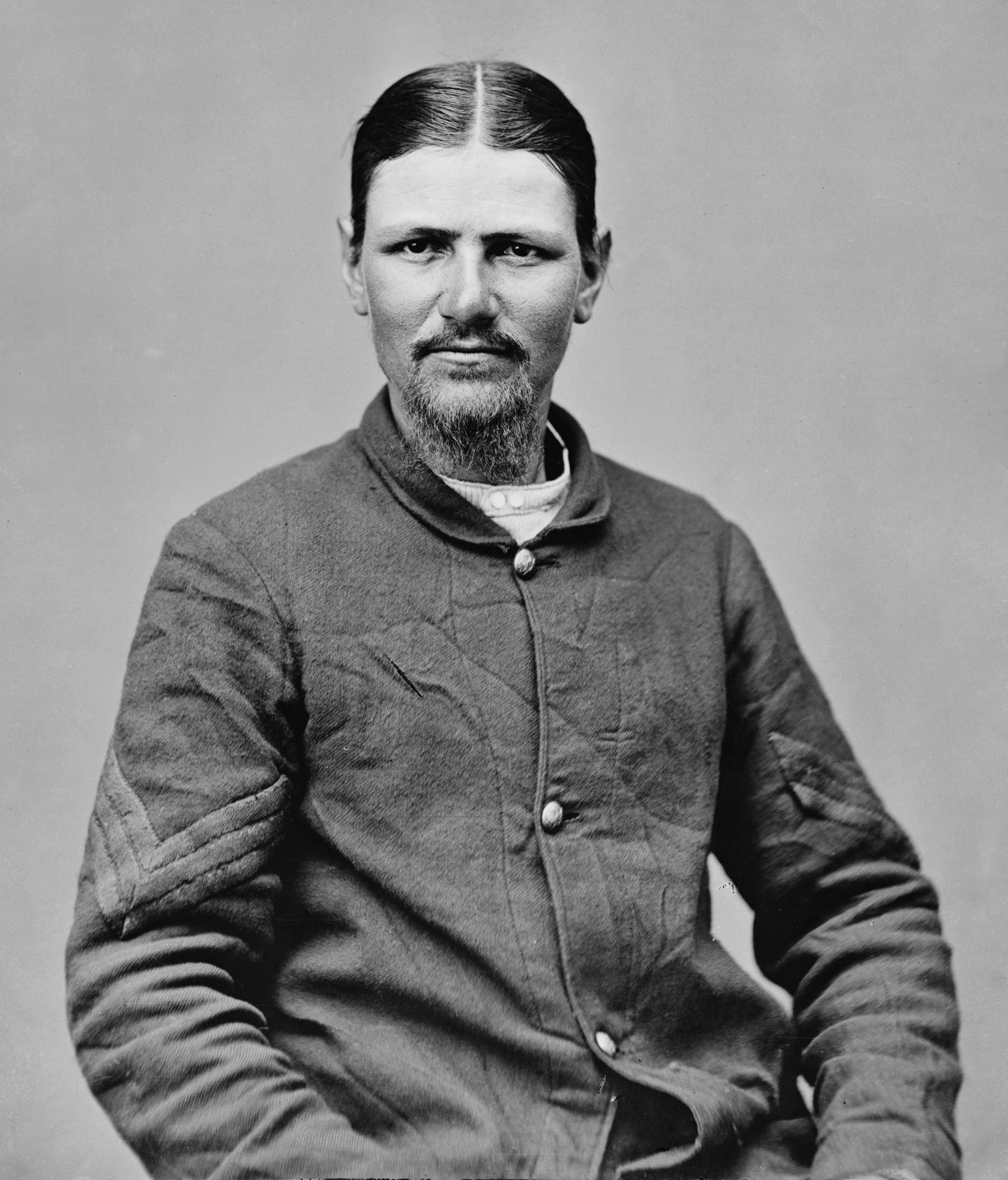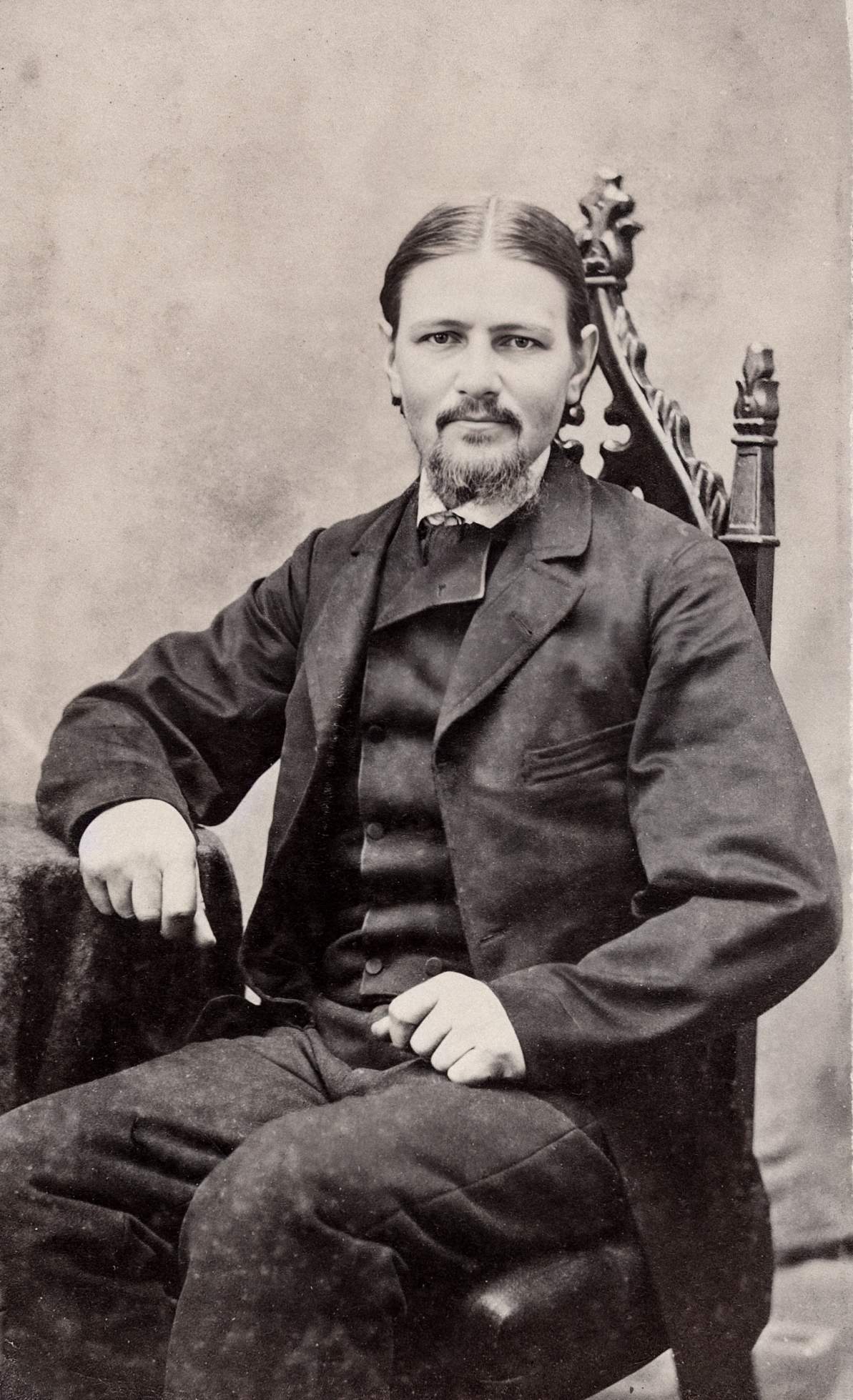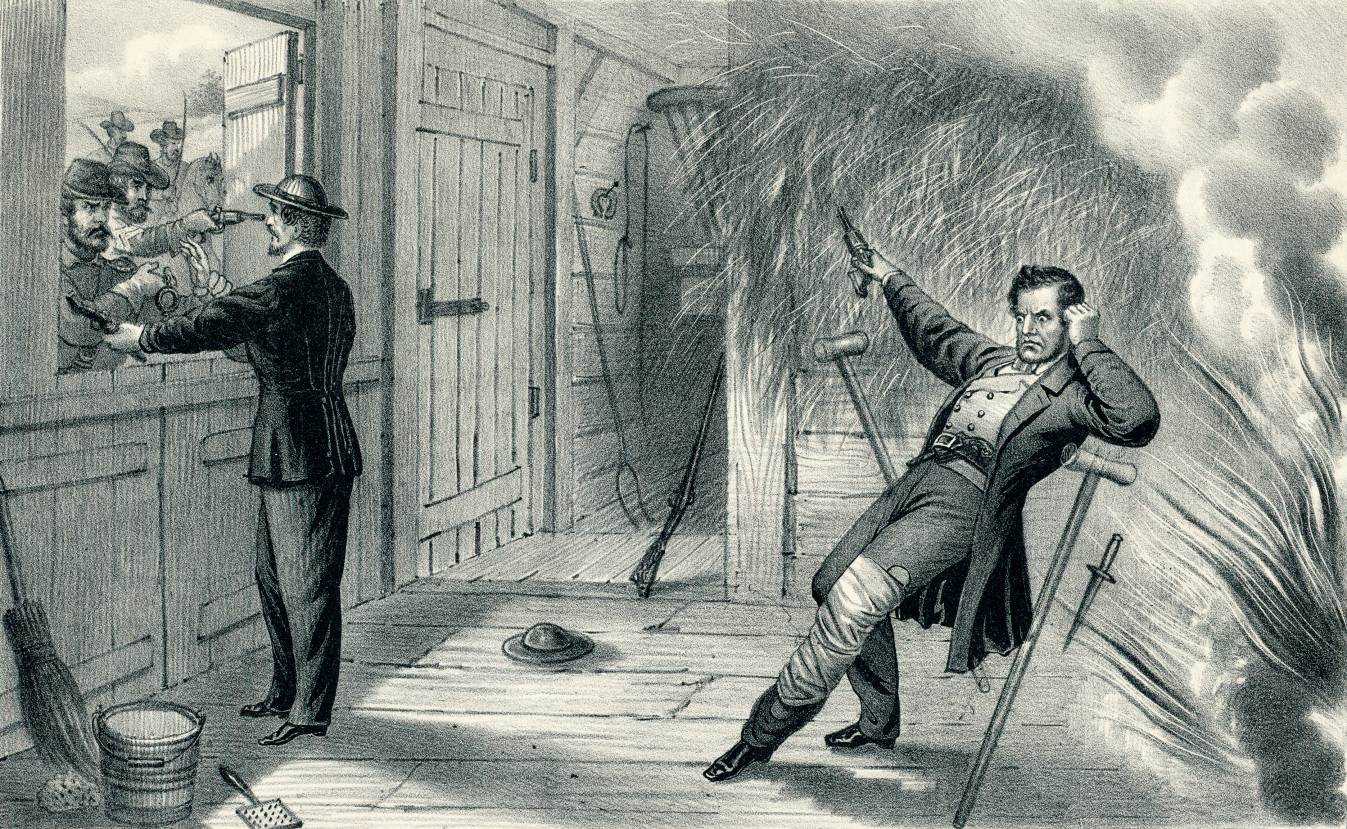Thomas “Boston” Corbett was a figure of intrigue and controversy during the American Civil War era. Known as “Lincoln’s Avenger,” he gained fame for his role in the pursuit and alleged killing of John Wilkes Booth, the assassin of President Abraham Lincoln. However, Corbett’s life took a dark turn after the assassination, and he ultimately vanished, leaving behind a legacy shrouded in mystery. In this article, we will delve into the fascinating story of Thomas “Boston” Corbett, exploring his early life, military service, involvement in the pursuit of Booth, and his enigmatic disappearance.

Thomas “Boston” Corbett’s early Life and conversion
Born in London, England, on January 29, 1832, Thomas Corbett immigrated to the United States with his family in 1840, settling in New York City. As a young man, Corbett apprenticed as a milliner, a profession he would intermittently practice throughout his life. However, his journey took a significant turn when he experienced a series of personal tragedies. After the deaths of his wife and child in childbirth, Corbett moved to Boston, where he spiraled into despair, becoming homeless and turning to heavy drinking.
It was during this tumultuous period that Corbett’s life took a transformative turn. Confronted by a street preacher, Corbett was inspired to join the Methodist Episcopal Church, renounce alcohol, and embrace a life of religious devotion. He even changed his name to Boston, after the city where he experienced his conversion. Boston Corbett’s fervent religious beliefs, combined with his eccentric behavior, earned him the nickname “The Glory to God man” among his fellow churchgoers.
Enlistment in the Union Army

In April 1861, as the American Civil War broke out, Corbett enlisted as a private in Company I of the Union Army’s 12th New York State Militia. However, his eccentricities quickly landed him in trouble. Corbett’s constant reading of the Bible, unauthorized prayer meetings, and confrontations with superior officers led to his court-martial and eventual discharge in August 1863. Undeterred, Corbett reenlisted later that month, this time joining Company L of the 16th New York Cavalry Regiment.
Corbett’s dedication to his newfound faith and his unwavering sense of justice became evident during his service in the Union Army. He frequently clashed with officers and superiors, openly criticizing their behavior and advocating for what he believed was right according to God’s word. Corbett’s commitment to his religious principles would ultimately lead him down a path intertwined with one of the most notorious events in American history.
Pursuit of John Wilkes Booth
On April 14, 1865, President Abraham Lincoln was assassinated by John Wilkes Booth, sending shockwaves throughout the nation. Determined to bring the assassin to justice, a manhunt ensued, with Boston Corbett’s regiment assigned to apprehend Booth. On April 26, Corbett and his fellow soldiers surrounded Booth and his accomplice, David Herold, in a tobacco barn on a farm in Virginia.
Booth, refusing to surrender, declared, “I will not be taken alive!” The soldiers set the barn on fire, hoping to force Booth out. Positioned near a crack in the barn wall, Corbett had a clear line of sight to the assassin. In a moment that would forever change the course of history, Corbett fired his Colt revolver, striking Booth in the head and inflicting a fatal wound. The man who had taken the life of President Lincoln met his own demise at the hands of “Lincoln’s Avenger.”
Shooting Booth – the controversy

The circumstances surrounding Booth’s shooting and Corbett’s role in it have been a subject of historical controversy. Corbett claimed that he saw Booth aim his carbine, leading him to act in self-defense and shoot the assassin despite orders to capture him alive. However, eyewitness accounts contradicted Corbett’s version of events, with some officers stating they never saw him fire his gun. Richard Garrett, the owner of the farm where Booth was found, and his son Robert also disputed Corbett’s claim that Booth had reached for a weapon.
Despite the conflicting accounts, Corbett’s actions were largely celebrated by the public and the press. His unwavering commitment to justice and his role in apprehending Booth earned him the gratitude of a nation in mourning. Corbett was hailed as a hero, and his life would never be the same again.
Mental decline and a mysterious aftermath
Following Booth’s capture and his own role in the event, Corbett’s mental state began to deteriorate. Some historians have theorized that his exposure to mercury nitrate, used in the hat-making process, may have contributed to his mental health issues. Corbett’s behavior became increasingly erratic, and he exhibited signs of paranoia and religious fanaticism. Concerned for his well-being, authorities deemed Corbett mentally unstable and committed him to an asylum.
However, Corbett’s time in the asylum was short-lived. On May 26, 1888, in a daring and mysterious escape, he managed to flee the asylum on horseback. He then rode to Neodesha, Kansas, where he briefly stayed with Richard Thatcher, a man he had met while they were prisoners of war. When Corbett left, he told Thatcher he was going to Mexico. From there, Corbett disappeared, leaving behind a trail of unanswered questions and speculation.
The circumstances surrounding his disappearance and his ultimate fate remain a subject of intrigue and fascination. Many believe that rather than going to Mexico, Corbett settled in a cabin he built in the forests near Hinckley, in Pine County in eastern Minnesota. He is believed to have died in the Great Hinckley Fire on September 1, 1894. Although there is no proof, the name “Thomas Corbett” appears on the list of dead and missing.
The legacy of Thomas “Boston” Corbett
Thomas “Boston” Corbett’s story is one of tragedy, heroism, and enigma. His unwavering commitment to justice and his role in the pursuit of John Wilkes Booth solidified his place in American history. However, his mental decline and subsequent disappearance have added layers of mystery to his tale. Was Corbett a victim of his own religious fervor? Did he meet a tragic end, or did he manage to escape and start a new life? The answers to these questions may forever remain elusive.
Nevertheless, the name Thomas “Boston” Corbett lives on, forever linked to the assassination of President Abraham Lincoln. His story serves as a reminder of the complexities of human nature, the blurred lines between heroism and obsession, and the enduring power of the pursuit of justice.
Final words
The life and legacy of Thomas “Boston” Corbett are a testament to the enduring fascination with the American Civil War era. From his early struggles and religious conversion to his role in the pursuit of John Wilkes Booth, Corbett’s story captivates the imagination. The mystery surrounding his disappearance only adds to the intrigue, leaving us to wonder about the final chapter in the life of “Lincoln’s Avenger.” As we continue to explore the annals of history, we may never fully unravel the enigma of Thomas “Boston” Corbett, but we can acknowledge the indelible mark he left on the pages of American history.
After reading about Thomas “Boston” Corbett, read about The mysterious disappearance of Ambrose Small.



